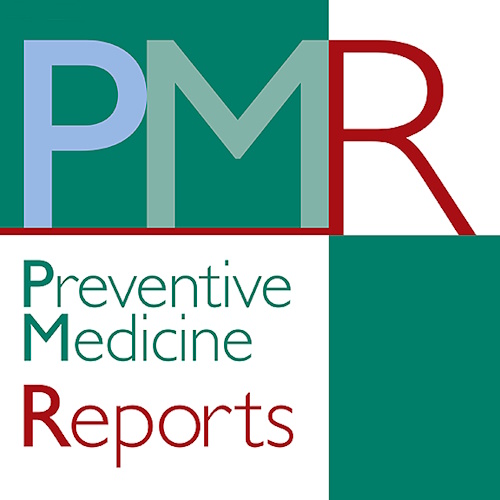Aging is a primary risk factor for various diseases. Traditional models often rely on chronological age to predict the likelihood of conditions such as hypertension and diabetes. However, these models can be inaccurate due to the significant variations in how individuals age biologically. This discrepancy underscores the need for more precise indicators of biological aging. One potential marker is α-Klotho, a protein that has been associated with aging processes.
A recent study investigated the prognostic value of serum α-Klotho levels in age-related diseases within the U.S. population. The research aimed to assess whether α-Klotho could serve as a more accurate predictor of disease risk than chronological age alone. The findings of this study could have significant implications for the development of personalized medicine and preventive strategies for age-related conditions.What is α-Klotho?
α-Klotho is a protein that acts as a co-receptor for fibroblast growth factor-23 (FGF-23), involved in phosphate metabolism. Defects in α-Klotho expression cause multiple aging-like symptoms in mice, such as arteriosclerosis and reduced lifespan. Conversely, overexpression extends lifespan. This dual role positions α-Klotho as a potential biomarker for aging.
Methods and population
The study utilized data from the National Health and Nutrition Examination Survey (NHANES), a comprehensive health survey conducted in the United States. The researchers focused on data collected between 2007 and 2016, encompassing a large sample of 13,746 U.S. adults with an average age of 56.19 years.
To assess α-Klotho levels, the researchers employed a commercially available ELISA kit, a standard laboratory technique used to measure protein concentrations in biological samples. In addition to measuring α-Klotho, the study also tracked the survival status of the participants over an average follow-up period of 7.62 years. This allowed the researchers to investigate the potential link between α-Klotho levels and mortality risk in the context of age-related diseases.
Key findings
The research revealed the following:
Serum α-Klotho Levels and Mortality:
The study revealed a significant association between low serum α-Klotho levels and increased mortality risk. Specifically, individuals with α-Klotho levels below 603.5 pg/ml exhibited a heightened risk of both all-cause mortality (death from any cause) and cardiovascular mortality (death from heart-related conditions).
The adjusted hazard ratio (HR), a statistical measure of relative risk, was 1.34 for all-cause mortality. This indicates that individuals with low α-Klotho had a 34% higher risk of dying from any cause compared to those with higher levels. For cardiovascular mortality, the adjusted HR was 1.63, suggesting a 63% increased risk for those with low α-Klotho levels.
Age and gender differences
The study observed notable differences in serum α-Klotho levels among various subgroups within the population. Individuals aged 65 and older tended to have lower α-Klotho levels compared to younger individuals. Additionally, males exhibited lower levels than females.
Certain lifestyle factors also appeared to influence α-Klotho levels. Individuals who consumed alcohol or smoked had lower levels compared to those who did not.
However, an interesting finding was that α-Klotho levels did not differ significantly between individuals with and without diabetes. This suggests that other factors may play a more significant role in determining α-Klotho levels in individuals with diabetes.
Impact on age-related diseases
The study further revealed that low serum α-Klotho levels were associated with increased mortality risk in several specific age-related diseases. These included hypertension (high blood pressure), congestive heart failure (a condition where the heart cannot pump blood effectively), diabetes (a chronic metabolic disorder), and emphysema (a type of lung disease).
This consistent association across multiple age-related diseases reinforces the significance of α-Klotho as a potential biomarker. The findings suggest that α-Klotho could be a valuable tool in identifying individuals at higher risk of these conditions, leading to earlier interventions and improved outcomes.
Biological mechanisms
The protective effects observed with higher α-Klotho levels may be attributed to its various anti-aging functions within the body. α-Klotho plays a crucial role in maintaining phosphate homeostasis, a balance essential for numerous physiological processes. Additionally, α-Klotho has been shown to suppress oxidative stress, a damaging process implicated in aging and disease development.
Conversely, deficiencies in α-Klotho have been linked to the onset of arterial stiffness, a condition where arteries become less flexible and more prone to damage, leading to hypertension (high blood pressure) and other age-related diseases.
These findings highlight the importance of maintaining adequate α-Klotho levels throughout life. Ensuring sufficient α-Klotho could potentially mitigate the risk of age-related conditions and promote healthier aging overall.
Clinical implications and limitations
The study's findings have significant clinical implications. Measuring serum α-Klotho levels could help identify individuals at higher risk of mortality due to age-related diseases. This biomarker could be integrated into clinical practice to improve risk stratification and guide interventions.
Despite its promising findings, the study has some limitations. The retrospective design may introduce recall bias. Additionally, the results may not apply to younger populations as the study focused on individuals aged 40-79. Further research is needed to validate these findings and explore the effects of high α-Klotho levels.
Low serum α-Klotho levels (<603.5 pg/ml) are associated with higher all-cause and cardiovascular mortality. This study highlights α-Klotho's potential as a biological aging marker, offering a new tool for assessing mortality risk in age-related diseases. Future research should focus on understanding the mechanisms behind α-Klotho's protective effects and exploring its clinical applications.
The study was carried out by researchers at the Southern Medical University and published in the journal Preventive Medicine Reports.






